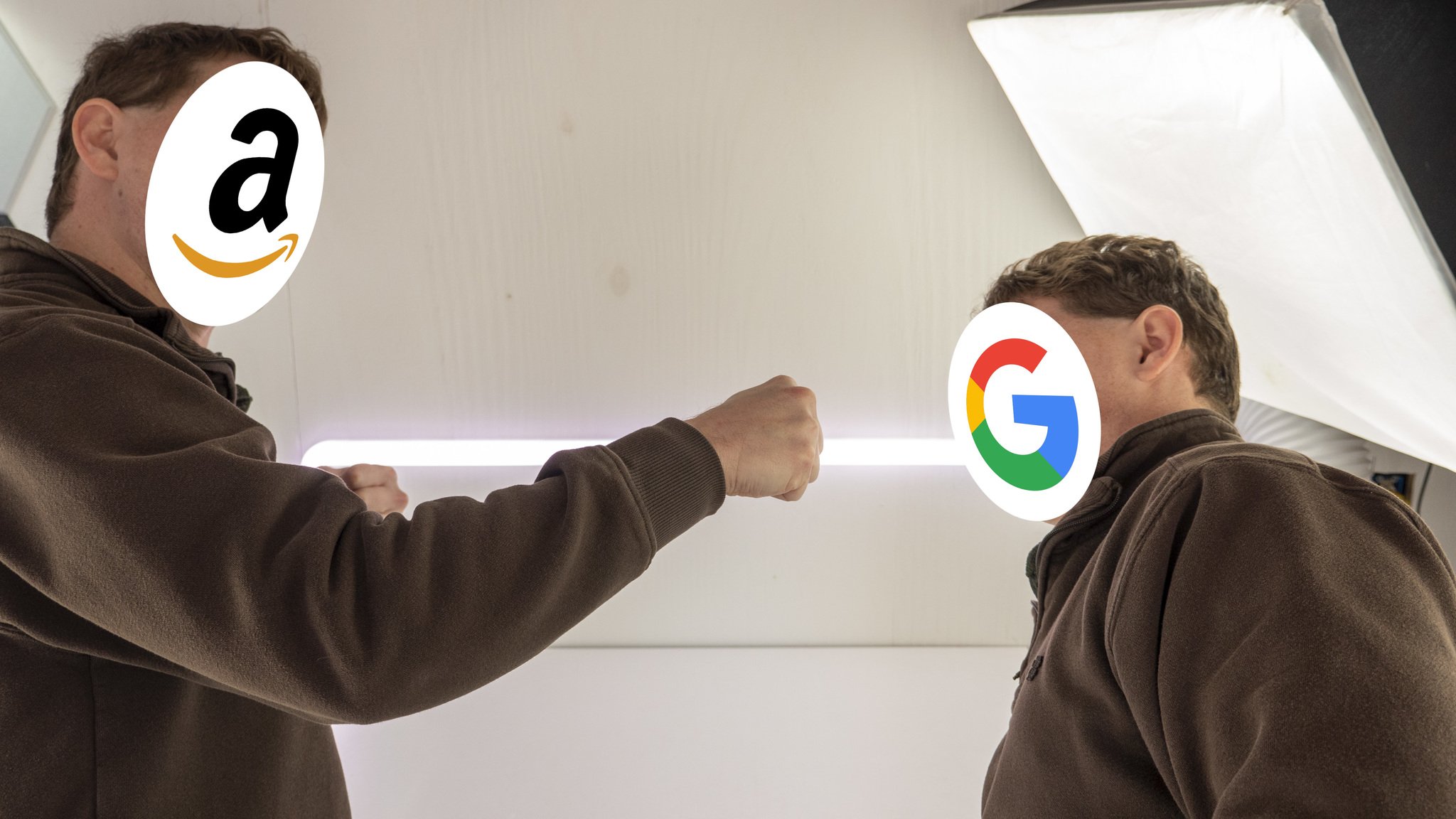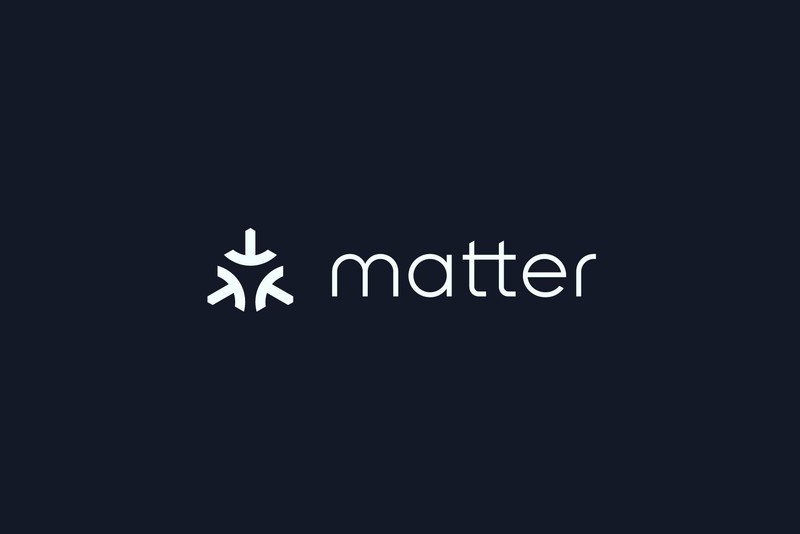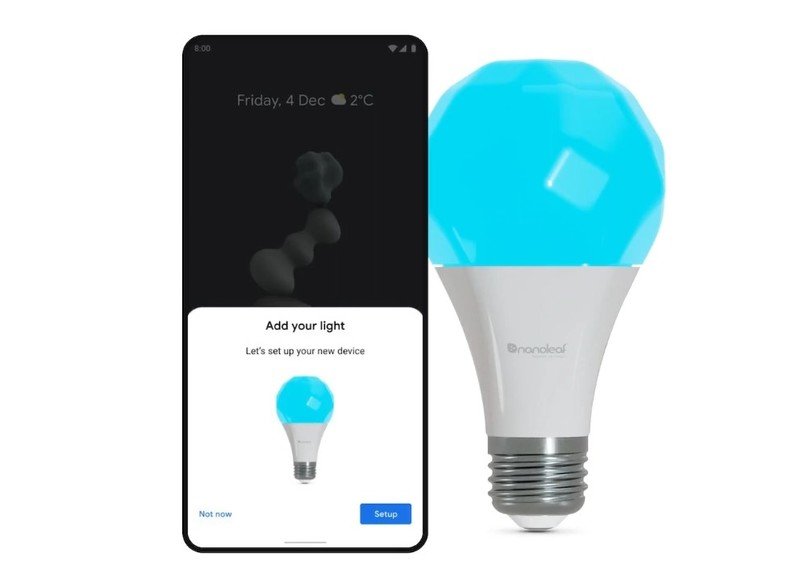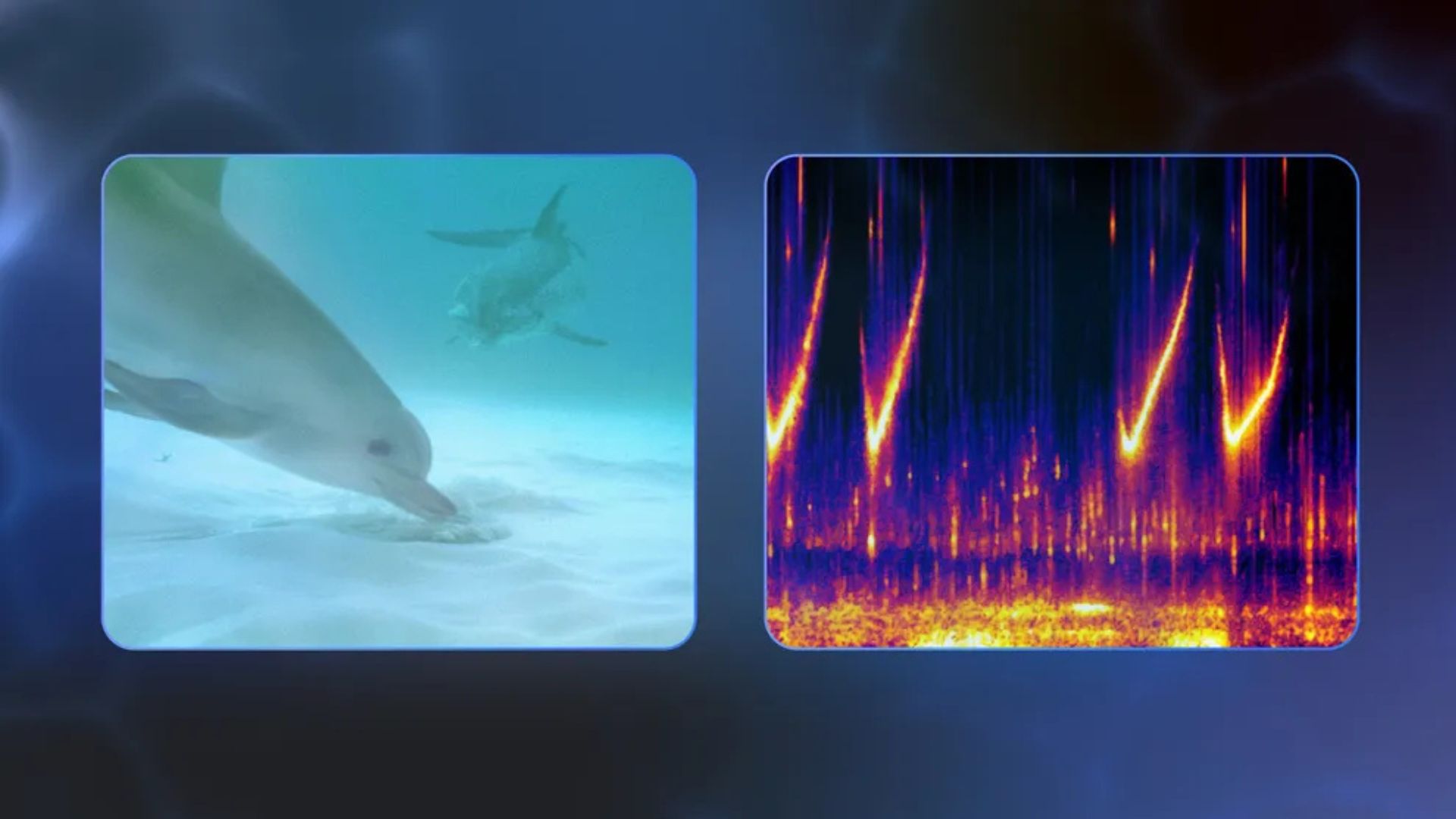It's only a matter of time before Matter fixes the smart home, right? Maybe not.

If you own any smart home gadgets, you know how fragmented and frustrating it can be to get them working together. Even the most technically proficient among us struggle with the complexities of the smart home in its current state.
Even notable brands like Nanoleaf have been struggling to create products that not only work well by themselves but also work well with others. The problem is that the main ecosystems people use — namely, Apple, Google, and Amazon — all have different ideas of how the smart home should look and operate.
In effect, they all speak a different language. Just like in real life, not all languages translate into another language very well. One might have a word that simplifies a thought or feeling, while the other language requires an entire sentence to convey the same idea.
This conundrum is exactly why Matter was built. What started as Project CHiP in 2019 was later rebranded to Matter in 2021 but has seen significant delays since its unveiling. Matter promises to be a single standard for smart home communication, but its delays keep companies like Nanoleaf from debuting new and exciting products.
After all, why release something now only to reinvent the wheel with an update once Matter eventually comes around? It doesn't make any sense, and Matter's delay further complicates an already complicated and convoluted industry.
Development purgatory
Nanoleaf's CEO, Gimmy Chu, told me in an interview at CES that the company has delayed plans for new products and updates so that they can coincide with Matter's eventual release. They want to do it right the first time instead of releasing something now, only to have to update them again later down the road and risk more fragmentation.
In the meantime, Nanoleaf has been trying to build in as much of Matter and Thread's functionality into its existing products to ensure it's ready the moment that the standard is.
Be an expert in 5 minutes
Get the latest news from Android Central, your trusted companion in the world of Android
They want to do it right the first time instead of releasing something now, only to have to update them again later down the road and risk more fragmentation.
Matter is the language devices speak in its simplest form, while Thread is the pipeline used to deliver the message. Think of it as talking to a friend on the telephone.
Most of the best Nanoleaf smart lights have what's called a Thread border router packed inside.
Thread was designed so that multiple devices in your home act as routers — called border routers in the Thread world — which means there should be no single point of failure. So if your Internet connection goes down, for instance, Thread devices theoretically wouldn't care much since they can still talk to each other just fine.
While Thread has been around in some form since 2014, relatively few products utilize Thread connectivity. Given that Thread is an integral part of what should make Matter a great standard, seeing companies like Nanoleaf pave the way forward is encouraging.
This means that Nanoleaf products won't just work well with Matter-ready products when they launch but will ensure that they're an integral part of your smart home going forward.
Is Matter the next RCS?

In fact, I was surprised to learn that Nanoleaf had to build all of the Thread functionality into its Android app on its own without the ability to hook into the Google Home or Amazon Alexa apps or ecosystems.
Meanwhile, Apple HomeKit already has Thread support built-in and can be used readily to build support into apps with a few relatively simple command hooks.
Companies have to wait for things to be finalized before jumping in headfirst and trying to build products with Matter support before Matter is actually finalized.
Nanoleaf is stuck waiting on the industry to get its act together in a similar way to Google's struggles with RCS messaging. Earlier in the decade, Apple wasn't willing to wait for everyone to agree on a standard and forged ahead to form the blue bubble iMessage cult in 2011.
Meanwhile, Google waited for years for carriers to agree on a new messaging standard — a reality that would never happen — and finally debuted its half-baked RCS messaging strategy in 2018.
Nanoleaf doesn't want to be stuck in development purgatory for years like Google was. But this time around, Nanoleaf isn't alone in its quest as Google was in the case of RCS messaging. It's got most of the entire smart home industry on its side — over 200 in the Matter initiative, specifically — and all of them are working toward a goal that is in the interest of all.
Because of this, companies have to wait for things to be finalized before jumping in headfirst and trying to build products with Matter support before Matter is actually finalized.
To me, USB Type-C is the perfect cautionary tale. Back when USB Type-C was becoming a standard, several companies like OnePlus jumped on board the moment it was announced.
USB Type-C is the perfect cautionary tale for what could happen if companies use Matter before it's finalized.
The result was a series of phones that didn't work right with all USB Type-C cables and chargers, causing significant confusion for years until the standard was finalized and products followed the actual guidelines. In the worst-case scenario, phones that misused this standard could be bricked entirely if they didn't use a specific cable or charger — the exact opposite experience that a standard is supposed to deliver.
That doesn't need to happen with Matter. The smart home is already fragmented and disjointed, and Matter is supposed to fix that, not make it worse.
Putting it off until tomorrow

The industry at large recognized this problem and sought to solve it by creating a brand new connectivity standard — called Matter, of course — specific to smart home devices.
While most of us were busy worrying about what's happening outside our doors in 2020, the IoT (Internet of Things) industry — that's a sort of catch-all term for all the random connected devices we have lying around our homes — was trying to figure out how to work together for the first time ever.
In 2021, Matter was delayed until the "first half of 2022." That quietly slipped to a "mid-year release" at CES 2022.
That's a big deal in a world run by the likes of Google, Apple, and Amazon, where choosing the right smart home ecosystem is a real struggle depending on what devices you want to use.
Matter's promise is that the central hub you choose to operate your smart home with — be it Amazon, Google, Apple, or one of those fancy new Samsung smart home hubs — won't be the thing that holds your smart home back or dictates what devices you can use.
In a Matter home, everything should work as if it were designed specifically for your exact setup.
But Matter has been delayed several times since its announcement. In 2021, Matter was delayed until the "first half of 2022." That quietly slipped to a "mid-year release" at CES 2022. Plenty of smart home companies talked about Matter at CES but have little to show for it.
In fact, until this thing solidifies and delivers a workable software development kit (SDK), we're not going to see any actual products or updates that benefit from the lofty goals we've heard so much about, and that, precisely, is the problem.
Building the bridge

So, what's the holdup? What's taking so long, especially if Thread — the network protocol that Matter uses to talk to other smart home devices — has already been around for nearly a decade?
Diplomacy.
In short, getting over 200 companies to agree on a single standard isn't an easy thing. As companies like Google and Amazon jumped on board in 2019, the formula for creating Matter became more complicated than ever. The Zigbee Alliance group of companies was prepared to craft something, and there's no doubt that initial plans have been changed time and time again since then.
Getting over 200 companies to agree on a single standard isn't easy.
But the protocols and technical details likely were the easiest part of the discussion. The root of the problem lies in the account systems that all companies use. In particular, companies like Google and Amazon use these account systems to gather massive amounts of data on their customers. That's literal money in the bank to these companies, who sell your information for top dollar to advertisers.
Matter's entire purpose is to provide a way for devices to finally connect without using proprietary commands, communications protocols and locked behind individual accounts. Matter should free up your smart home from the constraints of walled garden ecosystems, and that's not something the big guys are readily willing to give up.
Without knowing all the details and the behind-the-scenes deals that have to take place for this sort of standard to take shape, we can surmise a couple of things to help tender expectations going forward.

There's little likelihood that you'll be able to ditch your device accounts even after Matter launches. But you will be able to perform most — or maybe even all if I'm being my usual optimist self — commands via Matter, and that's probably what really matters in the end.
That means that all cameras that work via the Matter protocol should be displayed in your Google Home or Amazon Alexa apps. All video doorbells can pipe the voice through your smart speakers, no matter who makes them. All lights will know what "warm white" means when you ask to change the color. Yes, even your smart coffee maker will understand what a "brew" command means no matter what device it originates from.
There's little likelihood that you'll be able to ditch your device accounts even after Matter launches.
But that doesn't mean you won't need an Airthings account to set up your smart air quality monitor or that Govee's lights will suddenly be able to connect to your Thread network without some sort of authentication system.
In the end, it's unlikely that Matter will solve the account situation for initial setup, but it should erase the need to have 47 different apps installed on your phone just to properly control your smart home and its array of devices.
Until then, though, you'd better hope your smartphone has enough storage space to keep up with your smart home addiction.

